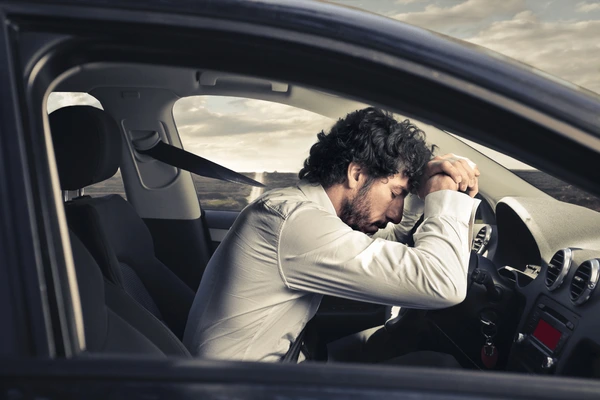Whether due to financial hardship, long road trips, or unexpected circumstances, sometimes people find themselves needing to sleep in their cars. While this can be a short-term solution, it’s crucial to be aware of the legal and safety implications of doing so, as these can vary by location. In Missouri, it’s a complex issue with a mixture of state laws and city ordinances. Understanding the regulations is important to avoid fines, legal problems, or safety risks.
Missouri State Laws Regarding Sleeping in Cars
Missouri does not have a statewide law explicitly prohibiting sleeping in your car. However, there are several laws and regulations that can be relevant depending on the specific circumstances:
- Rest Areas: Missouri rest areas are intended for short breaks and to help drivers avoid fatigue. While overnight parking is often tolerated, prolonged stays or setting up camp are generally not permitted.
- Public vs. Private Property: Sleeping in your car on public property (streets, parks, etc.) is often subject to local ordinances, which we’ll discuss later. If you are on private property, you must have the property owner’s permission. Trespassing laws can apply if you are on private property uninvited.
- Homelessness Laws: A 2022 Missouri law made it a misdemeanor offense to sleep on state-owned land. This has caused significant concern among homeless advocates, as it can further criminalize homelessness.
Drinking and Driving Considerations
In Missouri, and most states, it is possible to be charged with a DUI (Driving Under the Influence) even if you are not actively driving. The concept of “operating” a vehicle while intoxicated is pivotal.
- Missouri’s Interpretation of “Operating”: Missouri courts have a broad definition of “operating” a vehicle. If you have the car keys in your possession, the engine is running (perhaps to use heat or air conditioning), or you are in the driver’s seat, you could be considered to be in control of the vehicle and therefore “operating” it, even if you’re asleep.
- “Sleeping it Off” May Not Be a Defense”: Choosing to sleep in your car rather than drive after drinking does not automatically protect you from a DUI charge. If found by law enforcement in the circumstances described above, you could still be arrested and charged.
City-Specific Ordinances
Missouri cities often have their own ordinances that may restrict or prohibit sleeping in vehicles. Here’s a look at some major cities:
- Kansas City: Kansas City does not have a specific ordinance against sleeping in cars, but regulations about loitering and public camping might be applied at the discretion of law enforcement
- St. Louis: St. Louis ordinances are more restrictive. City codes may prohibit sleeping in vehicles in public areas, including parks.
- Springfield: Like St. Louis, Springfield has ordinances that may be used to restrict sleeping in one’s vehicle in public places.
- Other Missouri Cities: It’s highly recommended to research specific ordinances of any Missouri city where you may consider sleeping in your car. Contacting local police non-emergency lines or consulting city websites can be helpful.
Finding Safe and Legal Places to Sleep in Your Car
If you must sleep in your car in Missouri, finding designated safe and legal locations is crucial. Here are some options:
- Rest Areas: Missouri rest areas are a good starting point. While not meant for overnight stays, they’re usually well-lit and safer than parking on the side of the road.
- Campgrounds and RV Parks: These offer a designated space and amenities, but usually involve a fee.
- Retail Parking Lots: Some businesses, like Walmart, may allow overnight parking by travelers. However, always ask for explicit permission from the store manager to avoid issues.
- Designated Safe Parking Programs: Some Missouri cities are beginning to develop safe parking programs specifically for people experiencing homelessness who live in their vehicles. Research if such programs exist in your area.
Tips for Staying Safe While Sleeping in Your Car
Even in permitted locations, take precautions for your safety:
- Choose a Well-Lit Area: Park in a well-lit, visible area to deter potential crime.
- Park Strategically: If possible, park near security cameras or in areas with some foot traffic. Avoid isolated spots.
- Lock Your Doors: Always lock your doors, even when sleeping.
- Keep Valuables Out of Sight: Don’t leave valuables visible in your car, as this can attract theft.
- Slightly Crack a Window: This helps with ventilation and prevents condensation buildup.
- Be Aware of Your Surroundings: If something feels unsafe, trust your instincts and relocate if possible.
Alternatives to Sleeping in Your Car
Sleeping in your car should generally be a last resort. Here are some alternatives to consider if possible:
- Shelters: Many cities have shelters that offer temporary housing. Contact local homeless services or social services organizations for referrals.
- Couch Surfing: If you have friends or family willing to let you stay temporarily, this can be a safer and more comfortable option.
- Assistance Programs: Missouri has resources to help with housing instability. The Missouri Department of Social Services or local non-profit agencies may offer assistance programs, rental aid, or other support.
Conclusion
Sleeping in your car in Missouri is a legally and logistically complex situation. State laws, local ordinances, and safety considerations all need attention. While sometimes unavoidable, prioritizing safe and legal alternatives and seeking assistance when possible is always the best course of action.
Important Notes
- Laws and regulations can change over time. Always double-check current information before making decisions based on this guide.
- This article does not constitute legal advice. If you have specific legal concerns, consult with an attorney.
Sources
- DubsLabs: Sleeping In The Car: How To Stay Legal and Safe: https://dubslabs.com/blog/sleeping-in-the-car-how-to-stay-legal-and-safe-/
- PBS: Advocates push back against new Missouri law that criminalizes sleeping outdoors: https://www.pbs.org/newshour/nation/advocates-push-back-against-new-missouri-law-that-criminalizes-sleeping-outdoors
- Reddit: FYI it is now illegal to sleep on state-owned land in Missouri. This includes the Katy Trail : r/bikepacking: https://www.reddit.com/r/bikepacking/comments/103g39h/fyi_it_is_now_illegal_to_sleep_on_stateowned_land/
- Bretz Legal, LLC: How can I get a DWI for Sleeping in a Parked Car? : https://www.bretzlegal.com/blog/how-can-i-get-a-dwi-for-sleeping-in-a-parked-car/
- SmartFinancial: Is It Illegal To Sleep in Your Car?: https://smartfinancial.com/is-it-illegal-to-sleep-in-your-car
- Missouri Department of Transportation Rest Area Information: [invalid URL removed]
- Missouri Department of Social Services: https://dss.mo.gov/



